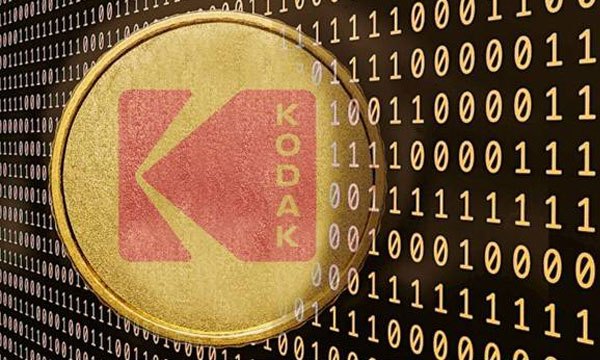
Potential investors in Kodak’s upcoming digital currency were recently warned about fraudulent websites and social media pages that might be promoting or claiming to already be selling the currency.
The initial offering of KODAKCoin, a cryptocurrency venture backed by Eastman Kodak Co. and its brand licensing partner, WENN Digital, was delayed last week as the partners work to verify the status of each investor, according to a statement on the KODAKCoin website. The currency was supposed to be open for purchase by investors on Jan. 31. But now, the company said the verification process could delay the start by several weeks.
WENN Digital recently sent an email to potential investors, saying to be aware of potential scammers who may be attempting to defraud those looking to get in on the venture, according to Kodak.
“It has come to our attention that there are several spam KODAKCoin (Initial Coin Offering) websites and Facebook sites promoting and even purporting to sell KODAKCoin tokens,” the email read. “Please be advised that there is only one official KODAKOne and KODAKCoin Facebook page and our official ICO website is www.KODAKCoin.com.”
The announcement about the delay came a day after a report by The New York Times raised questions about how closely Kodak vetted its cryptocurrency partners. It described Kodak’s partners in the venture as “a paparazzi photo agency, a penny-stock promoter and a company offering what has been called a ‘magic money making machine.'”
The report raised questions about the background of Cameron Chell, a lead consultant to the KodakCoin project. According to the Times, he agreed to a five-year ban from the Alberta Stock Exchange in Canada in 1998 and paid a $25,000 fine after rules violations. A company that bore Chell’s name “ended in ignominy” after its chairman was charged with fraud.
Times technology columnist Kevin Roose also described a technical document explaining how Kodak’s cryptocurrency would work as “a 40-page mishmash of marketing buzzwords and vague diagrams.”
KODAKCoin falls under the KODAKOne program, which will be an encrypted, digital ledger of rights ownership for photographers to register both new and archival work that they can then license for use.
The company described KODAKCoin as “a new economy for photography,” which will allow photographers to receive payment for licensing their work immediately upon sale, sell their work confidently on a secure blockchain platform.
The system will be open to both professional and amateur photographers.
“Engaging with a new platform, it is critical photographers know their work and their income is handled securely and with trust, which is exactly what we did with KODAKCoin,” said Kodak CEO Jeff Clarke.
The 130-year-old company emerged from bankruptcy in 2013 with a new focus on digital printing and consumer packaging. But revenues have fallen each year, from $2.4 billion in 2013 to $1.5 billion in 2016. Quarterly reports for 2017 continued to show year-over-year declines.
Tech investors have been driving up stock prices for companies involved with digital currency or blockchain technology, even in cases where the link is tenuous.
Clarke acknowledged the buzz around these technologies but dismissed skeptics who said the KODAKOne announcement was a ploy aimed at giving the stock a short-term boost. Rather, he explained, it was the next step in what has always been part of the company’s key mission: empowering photographers.
“For many in the tech industry, ‘blockchain’ and ‘cryptocurrency’ are hot buzzwords, but for photographers who’ve long struggled to assert control over their work and how it’s used, these buzzwords are the keys to solving what felt like an unsolvable problem,” Clarke said.
